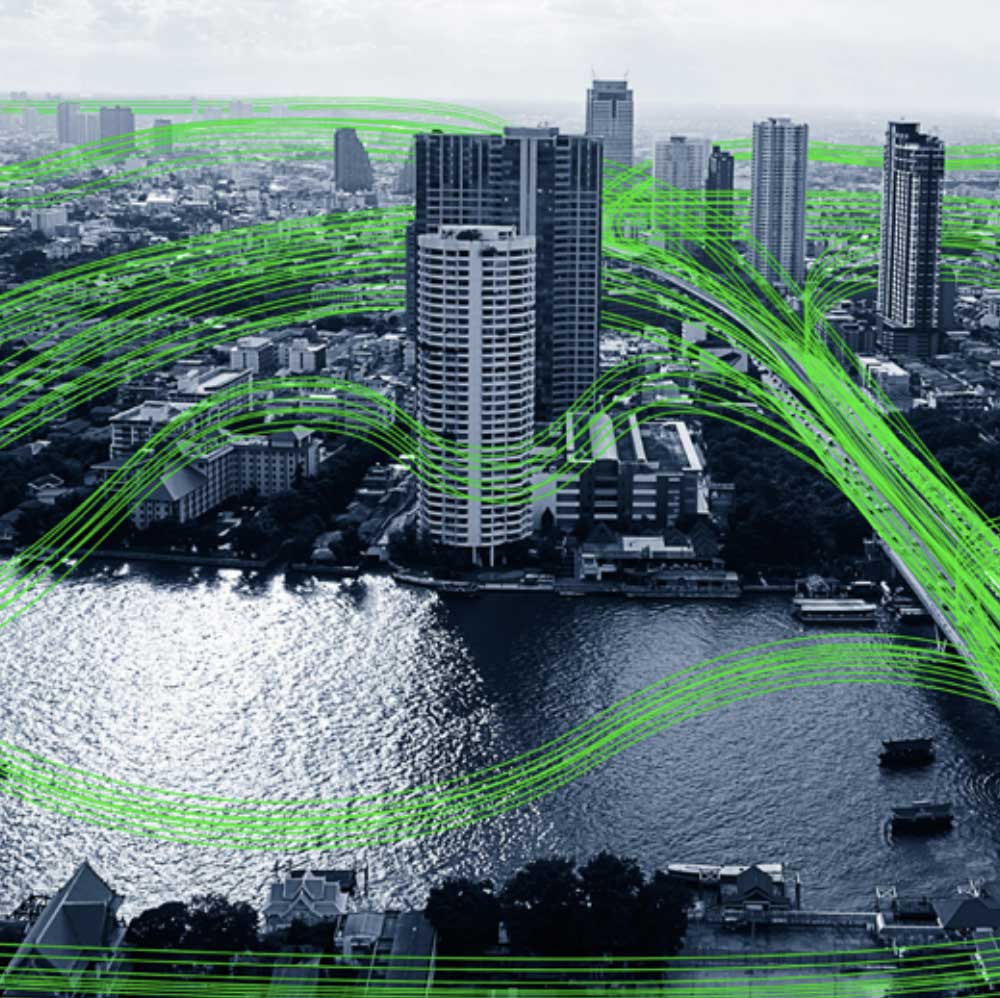uZero
Supporting fuel-poor households through data integration and AI.
November 15, 2021
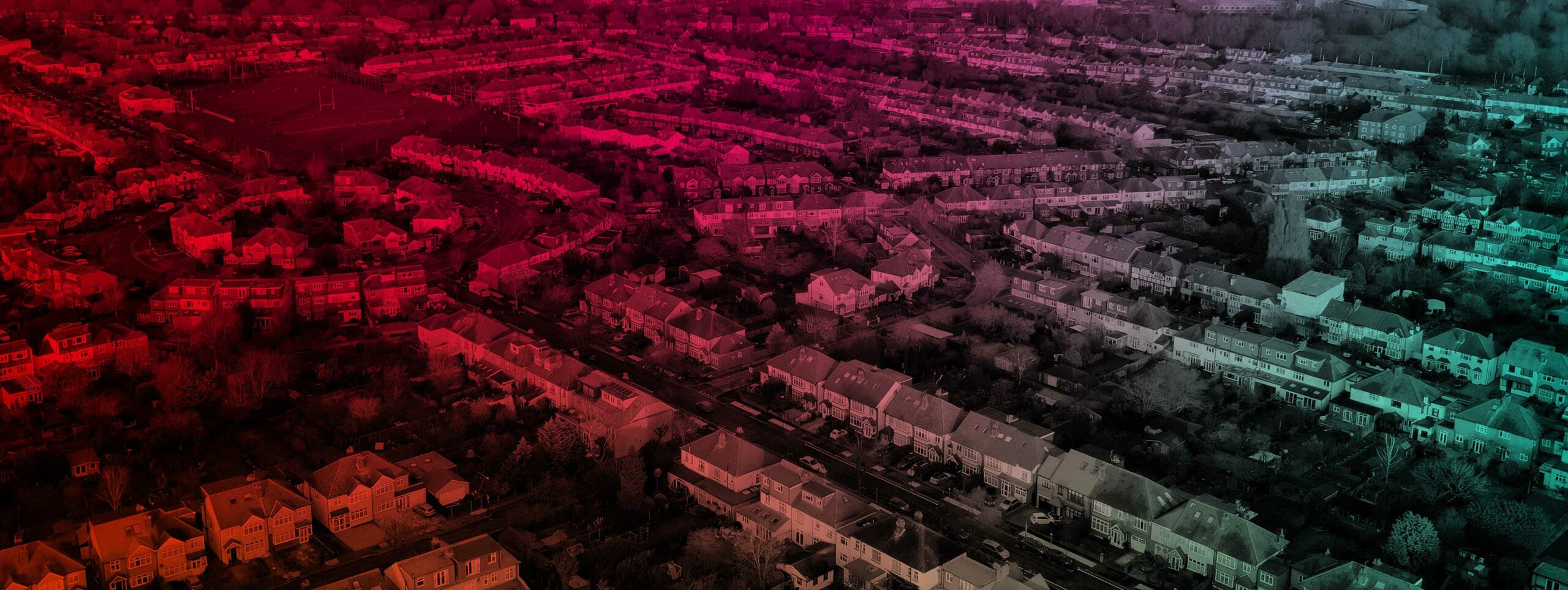
UrbanTide are delighted to be one of the nine winners of UKRI’s ‘Modernising Energy Data Applications (MEDA)’ competition. In partnership with the Data Communications Company, UCL Academic Consultants, Greater South East Energy Hub, Connected Places Catapult and Scottish and Southern Energy Networks, UrbanTide are developing uZero to help organisations deliver net-zero local energy systems.
The competition was overseen by UKRI’s £102.5 million Prospering from the Energy Revolution challenge. MEDA is a two-phase opportunity that will be followed by the development and testing of prototypes from the winning projects.
uZero will, for the very first time, combine UK-wide smart meter system data with multiple cross-sector data sources to:
- identify households that would benefit from energy efficiency programmes
- identify households in fuel poverty by combining data and using machine learning
- propose an intervention approach, which can maximise energy reduction toward net-zero whilst reducing fuel poverty.
Phase 1 Complete
Our homes account for nearly 20% of CO2 emissions and must decarbonise if we are to meet our Net Zero Targets. uZero's vision and goal is to deliver data-driven innovation tools to better identify households in, and at risk of, fuel poverty through the integration of novel and previously unused data. Retrofitting the UK's 29 million housing stock is critical and will help to reduce fuel poverty for 2.4m households and reduce household CO2 emissions at the same time.
During Phase 1 uZero delivered outstanding results including:
- The first-ever sharing of 18 months of anonymised DCC smart meter system data from 11 million smart meters.
- Approval from Ofgem and DCC for this external use case
- Extensive analysis uncovered patterns of behaviour that reveal novel insight on fuel poverty. This proved feasibility and theoretically illustrated better outputs than the status quo approaches for fuel poverty identification
- Confirmation of demand for the uZero service through engagement with key stakeholders and prospective customers.
- New ethics and Data Governance approvals obtained for SERL data to be accessed by Accredited Researchers at UCL for fuel poverty research.
Now onto Phase 2
uZero Phase 2 has recently commenced and will take the product through alpha and beta testing, and into live production serving customers with a robust, usable and scalable product. Thus providing an understanding of the impact in reducing fuel poverty and meeting net-zero targets.
Meet uZero’s MEDA Consortium
UrbanTide has combined a unique multidisciplinary team of energy and data experts with world leading capability and a remit to deliver.
As the consortium leader, UrbanTide provides state-of-the-art AI solutions built for complex data challenges. Leveraging experience gained in providing their data innovation platform (uSmart) to the Energy Systems Catapult for the £14.6m (BEIS) Electrification of Heat Demonstration Project.
The Data Communications Company (DCC)
DCC is transforming Britain's energy infrastructure by working with energy retailers, Distribution Network Operators, Managed Service Providers and other businesses with an interest in their network. By connecting homes and businesses to a single, secure network for digital smart meters they are helping protect consumers and enabling Britain to make the fullest use of renewable energy.
DCC has a great relationship with Connected Place Catapult (CPC) and combined their extensive research on using smart meter system data to support Net Zero targets and tackle fuel poverty.
Read DCC’s Addressing Fuel Poverty: using data for public good and DCC participating in research project to help accelerate transition to Net Zero news articles here.
UCL Consultants
UCL Consultants (UCLC) is one of the UK’s leading providers of academic consultancy services, connecting businesses with their academic experts to solve problems, create new opportunities and develop capabilities to better understand complex issues.
UCLC provides a gateway to the knowledge and skills of the University College London’s 6,500 academics and research staff, a world-class, multi-disciplinary research and teaching institution, ranked eighth in the world's top universities by the QS World University Rankings (2022). The breadth and depth within UCL’s academics and research staff provides unmatched access to expertise that is founded on world-class research, rigour and integrity.
The UKRI Engineering and Physical Sciences Research Council (EPSRC) has funded a £6m five-year project, with a consortium of seven UK universities and the Energy Savings Trust, to develop a Smart Energy Research Lab (SERL) to provide vital access to energy data for the UK research community. The project commenced in August 2017 and runs to August 2022. SERL recruited 13,300 GB households to form the core observatory panel who completed a survey providing information about their household, covering energy and heating practices, accommodation, and household composition, along with their smart meter data. This smart meter data included information on gas and electricity consumption, historical data, tariff data and smart meter technical data. All data is securely stored at the UK Data Archive and is made available via SERL’s Research Portal, a secure virtual remote workspace developed by UK Data Archive with a standard suite of analysis software. Researchers are also able to bring their own data and code into the research portal.
University College London Smart Energy Research Lab (SERL) combines smart meter data and household data for research and innovation. They are at the forefront in research in Smart Energy, Net Zero and Fuel Poverty and want to expand the use of their Lab with novel applications like MEDA.
UCLC and SERL ethics highlighted the importance of comparing outputs with BEIS fuel poverty statistics, and understanding biases in data and their implications on identifying fuel poor. UCLC engaged with UrbanTide's data science team throughout the project to share ideas and knowledge around fuel poverty identification and data science techniques. UCLC continues to develop and build on the Smart Energy Research Laboratory (SERL), enabling integration with DCC metadata. This means that uSmart:ZERO models can gain representative insight from 13,000 participants and extrapolate without requiring the same intensive research UK wide.
Greater South East Energy Hub
The Greater South East Energy Hub (GSEEH) provides services to deliver Green Homes Grants and energy efficiency programmes with Local Authorities. GSEEH is a collaboration of eleven Local Enterprise Partnerships (LEPs) working together to increase the number, scale and quality of local energy projects being delivered across the greater south east region of England.
GSEEH has the remit to support and push adoption of grants to support Net Zero targets and fuel poverty reduction.
Greater South East Energy Hub has been keenly responsible for the shaping of the high-level requirements for uSmart:ZERO and the better identification of fuel poverty. They have done this via key partners which they work with on a daily basis including Local Authorities and Managing Agents.
Connected Places Catapult (CPC)
Connected Places Catapult is the UK’s innovation accelerator for cities, transport, and places. They provide impartial ‘innovation as a service’ for public bodies, businesses, and infrastructure providers to catalyse step-change improvements in the way people live, work and travel.
Connected Places Catapult connects businesses and public sector leaders to cutting-edge research to spark innovation and grow new markets. They run technology demonstrators and SME accelerators to scale new solutions that drive growth while contributing to economic growth and a better, greener future for all.
CPC has a longstanding relationship with DCC and others and has the vision to address energy problems in the connected places field utilising the latest technologies. They are leading experts in engagement for technical solutions.
CPC undertook extensive research into both user needs and user benefits bringing extensive experience from both their economics and urban data teams. The research included widespread engagement with various stakeholders including Local Authorities, Housing Associations, Managing Agents, in particular providing some valuable findings and insight to ensure the demand for better fuel poverty identification. CPC continues to build on widespread engagement, testing and co-design work packages through practised research and testing methodologies.
Scottish and Southern Energy Networks (SSEN)
Scottish and Southern Electricity Networks distributes power to 3.7 million homes in central southern England and north of Scotland. They have an inherent need to both find fuel poor customers but also to manage network demand and capacity better for net-zero and supply targets.
SSEN is developing user requirements following a user stories approach with regards to network constraints and fuel poverty. They will provide data flows to improve uSmart:ZERO, test the product with their users and feedback on user expectations to the project.
More
Unlocking Ireland's Data Potential: Navigating the Open Data Directive with UrbanTide
News

UrbanTide's Commitment to Security: Officially ISO 27001 Certified!
News

uZero was awarded the edie Net Zero Innovation of the Year: Software, Systems & Services Award
News
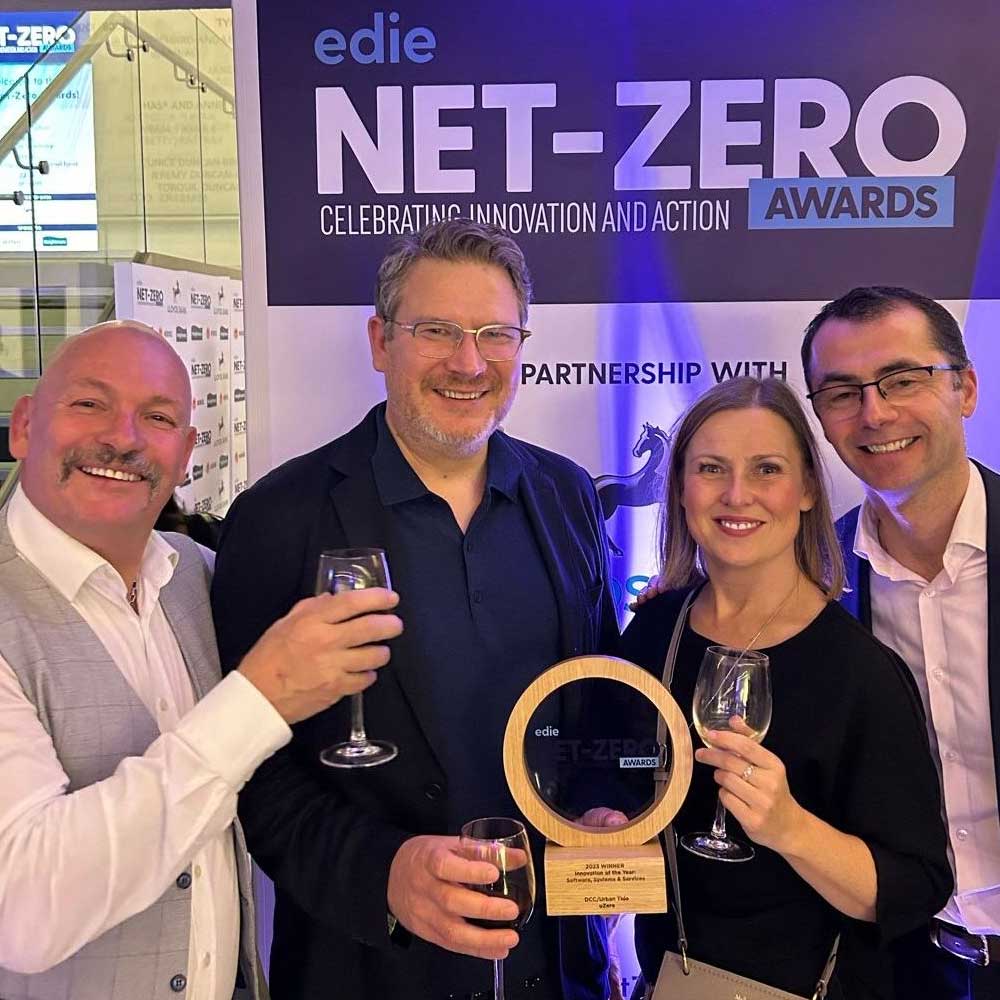
Tackling the growing fuel poverty crisis and supporting the Just Transition to net zero
News

Low Carbon Homes’ Home Upgrade Show: Innovations in Retrofit
News
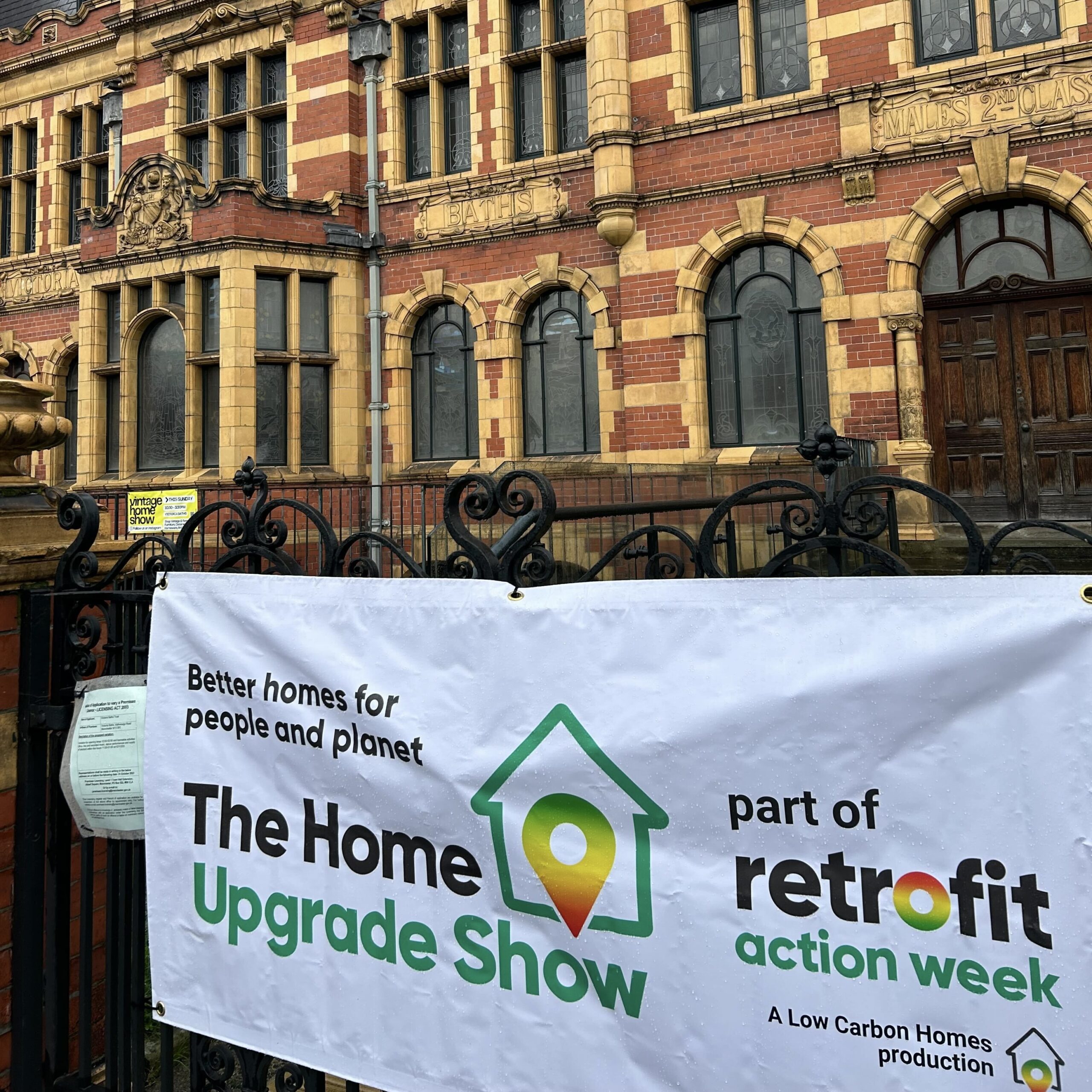
Data Integration and Collaboration are critical for the future of Transportation: Insights from JCT Symposium
News
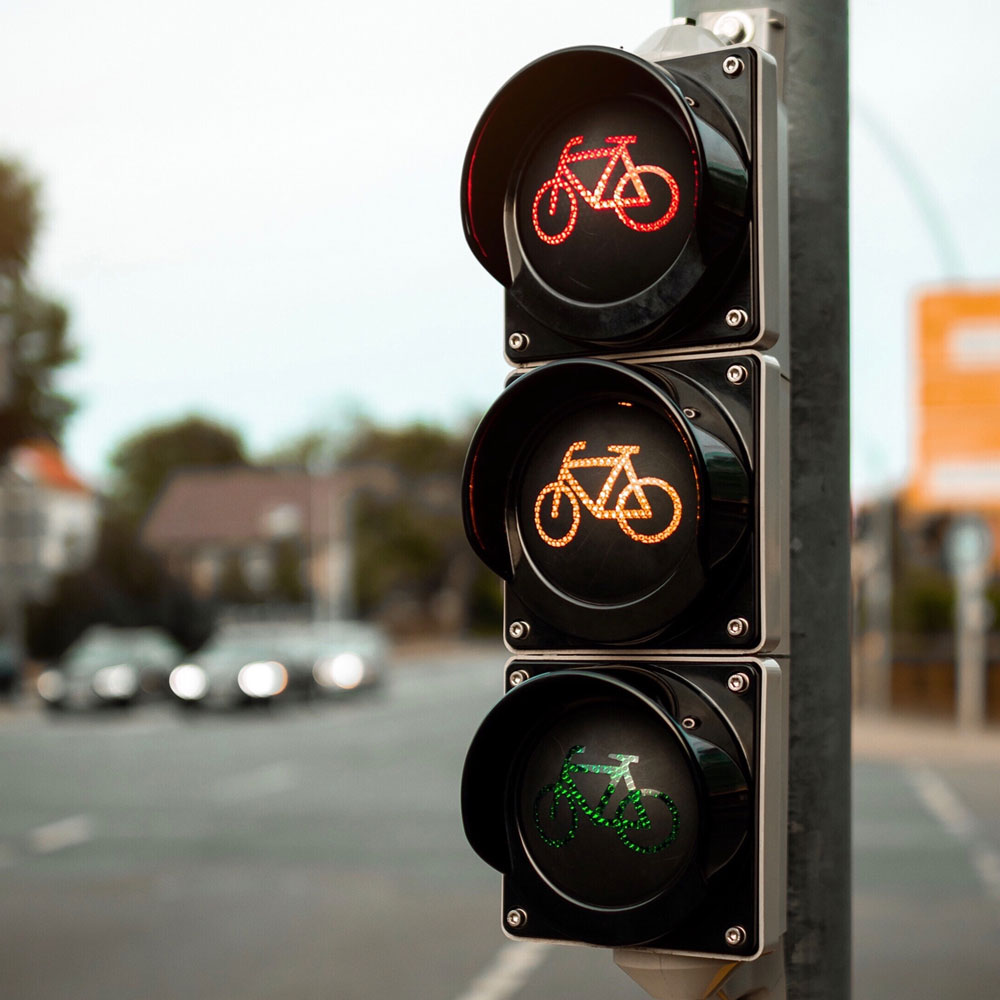
uMove to support Bedfordshire Council to achieve ambitious sustainability plans
News

Active travel, the current challenges and solutions
News

Start your journey
Take a look at our product page to find out which UrbanTide AI tool has been designed for your needs.
Find out how we can support your data and AI projects and see our growing AI portfolio in action.
